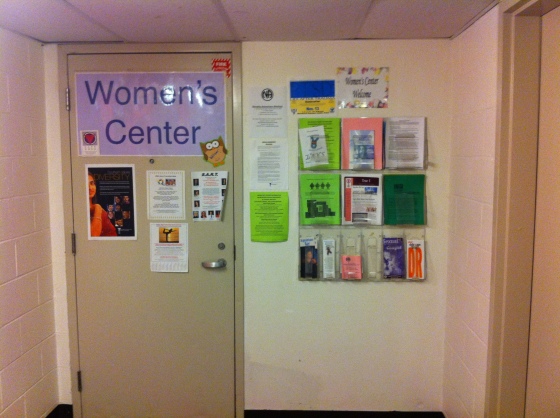Michelle Hennessy – News Writer
College campuses nationwide don’t do enough to implement laws on sexual harassment, according to Madison Breuer from SCSU’s Women’s Center.
“It’s a giant problem especially on college campuses and the universities aren’t responding to it,” said Breuer. “Every year it’s getting higher and higher and no one’s doing anything about it and people aren’t taking it seriously.”
Rape has become such a big problem in the U.S. According to Prevent Connect, a national project of the California Coalition Against Sexual Assault, rape is more common than smoking among women. The findings said 18.3% of women over 18 reported being sexually assaulted in their lifetime while 17.4% of women reported smoking.
Breuer said one of the reasons it’s becoming an increasing issue is because people don’t talk about it and raise awareness for the problem.
“A perfect example of this is when Quinnipiac in 2011, the reaction and the uproar over the women’s volleyball team being cut was nationwide. Everyone knew about the women and their team being cut. Yet in 2010 there was the fraternity at Yale blocking the women’s center chanting ‘No means yes, Yes means anal’ and they had to fight to have that fraternity suspended. So that’s the perfect parallel, we want to protect sports more than we want to protect women,” said Breuer.
Making it easier to report incidents of sexual assault is one way Breuer said we can help the situation.
“I think a reason why people don’t want to make their reporting procedures easier are because then the figures will go up,” said Breuer. “But that doesn’t mean more people are getting raped, it means more people are getting help.”
SCSU has held a series of events on rape culture, including “The Women’s Fight Back,” which Breuer was on the panel for.

“I spoke about the David Chevan and Wendy Wyler case [David Chevan was a music professor at SCSU accused of sexual misconduct against student Wendy Wyler earlier in the semester] events like these are designed to fight back. Fight back against rape culture and against suppression of women’s rights and not allowing what’s happening with women on campuses nationwide. It’s not just here; it’s not just Southern. We need to make nationwide connections because it’s a problem that affects everywhere,” said Breuer.
Part of the reason rape culture has got so big in America is because women aren’t valued in society and as people have got away with it for so long, it’s difficult to bring about change, according to Breuer.
Junior, Alyssa Apelquist said she agrees not enough is done in America to help tackle the growing issue.
“I think people don’t think it’s a big deal and don’t realize it happens as much as it does,” said Apelquist. “I think Southern does enough, it’s just about getting people there. There’s posters and stuff about rape and they have meetings, I’ve seen them, I’ve received emails, but I don’t think that many people go to them.”
Therapeutic Recreation student, Torie Hovick also said as a nation, Americans should do more to raise awareness about rape culture.
“I think it’s something that’s blurred out,” said Hovick. “It’s seen as something that’s like, yes that happened, but if it’s not something that happened to you I think people tend to ignore it.”
Hovick said her high school had a better approach to raise awareness than some of the campaigns she’s seen around campus.
“I think I learned more about it in high school, they didn’t do the scare tactic, but once a year they would talk about things like rape to open your eyes,” said Hovick. “I think personal stories where you can see people’s emotion help open your eyes to it better and has more impact.”
But Breuer thinks if more campuses work together to implement laws, there’s no reason why the rates can’t come down.
“Southern had a big problem with drinking and driving rates and it’s still a problem, but we’ve managed to really crack down on that in the past five years,” said Breuer. “So I don’t understand why the same thing can’t happen with rape as long as we start holding people accountable.”



























































































